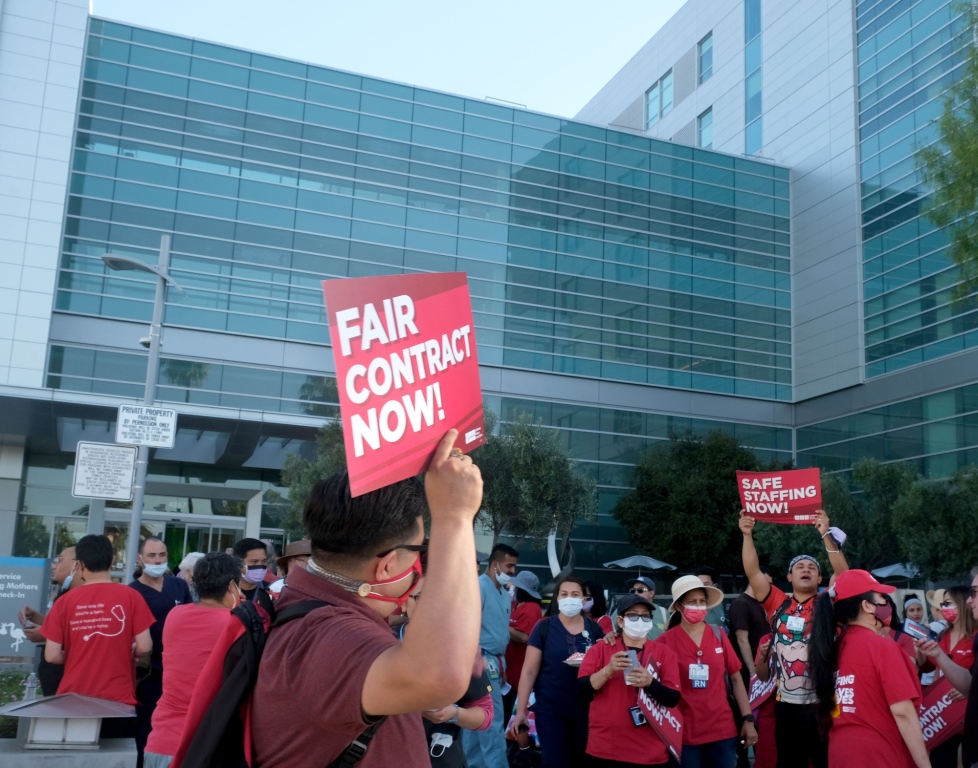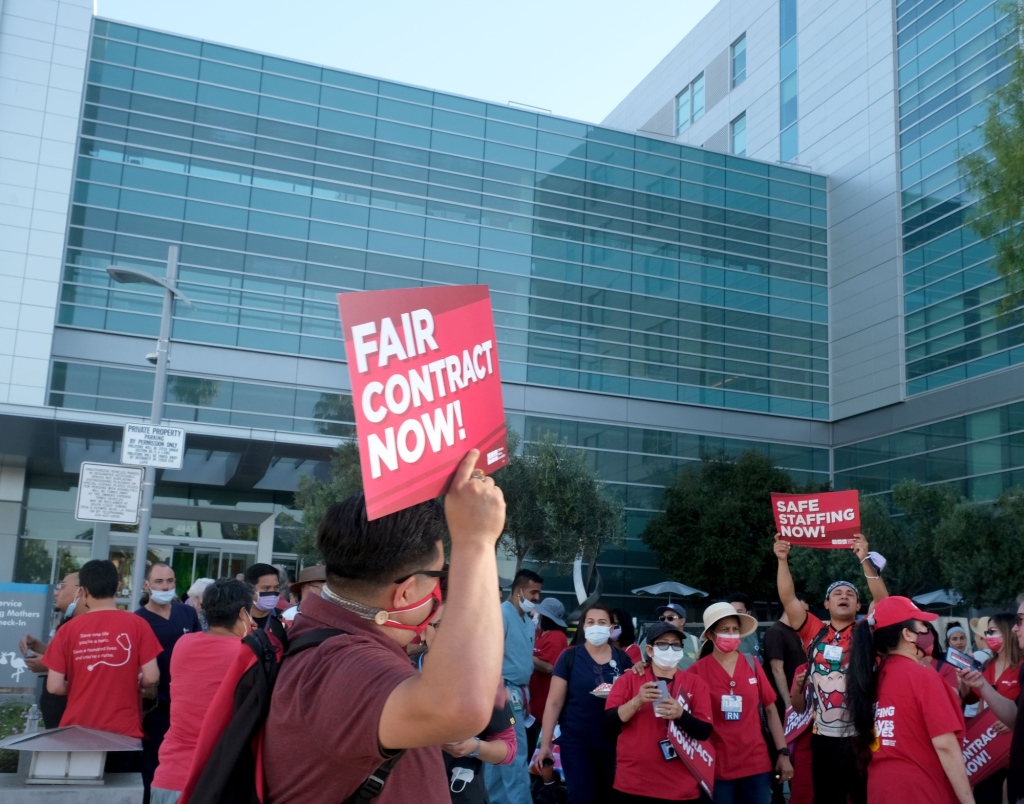
Kaiser Permanente workers plan to picket Kaiser hospitals and medical facilities in Southern California this week, saying low wages, understaffing and employee burnout have undermined patient care. Workers are here at a rally in September 2022 to protest safety concerns and understaffing. (File photo by Dean Musgrove, Los Angeles Daily News/SCNG)
Kaiser Permanente workers plan to picket Kaiser hospitals and medical facilities in Southern California this week, saying understaffing and employee burnout have undermined patient care.
Nurses, respiratory therapists, social workers, technicians, cooks, food personnel and others are represented by the Coalition of Kaiser Permanente Trade Unions. They are calling for an increase in staff after struggling with severe shortages throughout the COVID-19 pandemic.
They say the situation has led to long wait times for patients, misdiagnoses and neglect, making it more difficult to deliver quality care.
One employee said a strike is a “very real possibility” if his concerns are not addressed.
The Coalition — which includes SEIU-UHW, SEIU Local 121RN, the UFCW, several SIEPB locals and IFPTE Local 20 — began its national bargaining process in April. The workers’ employment contract will expire on September 30.
Gatherings will be held Tuesday, July 25 at Kaiser Permanente Medical Center in Downey, Kaiser Orange County North and Kaiser Panorama City Medical Center, among others, with additional pickets this week at Kaiser facilities in Antelope Valley, South Bay, West Los Angeles, Baldwin Park and Woodland Hills.
Miriam de la Paz, who works in the labor and delivery department at Kaiser’s factory in Downey, said she was constantly overworked.
“After so many shifts trying to do the work of two or even three people, we are exhausted and exhausted,” she said. “We need Kaiser to resolve this staffing crisis and hire more people so we can give each patient the time and attention they deserve.”
Frank Hurtarte, senior vice president of human resources for Kaiser’s operations in Southern California and Hawaii, said Kaiser’s priority was to reach an agreement that “ensures the company can continue to offer market-competitive wages and exceptional benefits.”
He questions the motives of the union.
“Given where we are in the negotiation process, it is clear that the picketing announced by the Coalition on July 13 is not intended to draw attention to new issues, but rather to attempt to create some sort of bargaining leverage,” Hurtarte said in a statement.
He added that Kaiser and the Coalition agreed in April on a common goal to hire 10,000 new employees for jobs represented by the Coalition in 2023.
“Staffing issues have happened across healthcare, but they’re actually less true at Kaiser Permanente now than elsewhere,” Hurtarte said.
Datosha Williams, a services representative at Kaiser’s South Bay Medical Center who also sits on the SEIU-UHW board, said the healthcare giant hasn’t moved quickly enough to hire more employees.
“They’re still discussing it, but there’s been no movement,” she said. “What’s even more frustrating is that they bring in workers from outside agencies and pay them more than we earn.”
Williams added that many Kaiser employees are service workers with a starting wage of $17 an hour.
“We are calling for a statewide minimum wage of $25 an hour for healthcare workers,” she said. “Some of our employees are one paycheck away from being kicked out and others are couch surfing with friends.”
Additional pickets will be held this week at Kaiser facilities in Washington, Oregon and Colorado. The Coalition of Kaiser Permanente Unions represents more than 85,000 healthcare workers in seven states and the District of Columbia.
